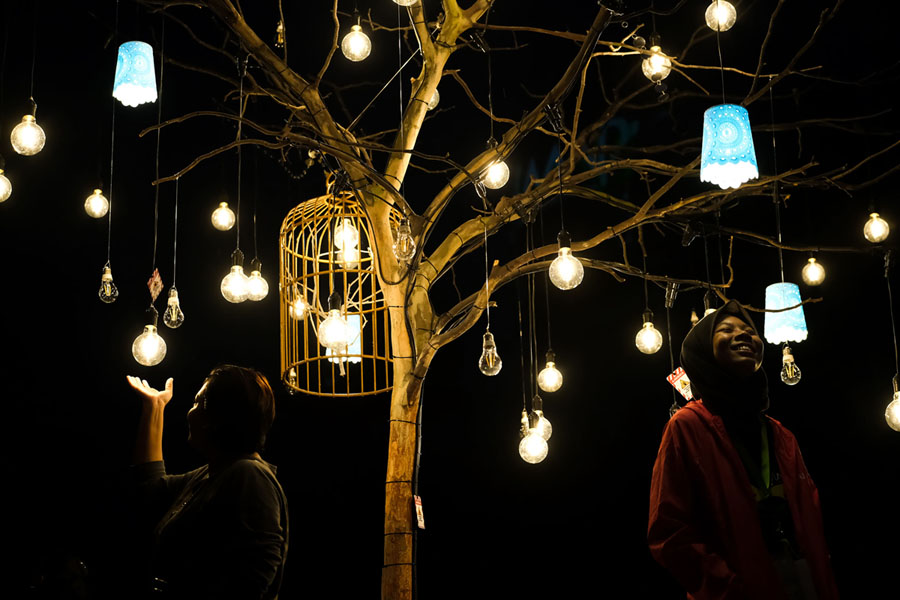The Year of Getting to Know Goodwill
Some of you might remember the blogpost I wrote last year at this time, in which I recommended a wonderful talk by Phillip Moffitt, called “Making This The Year Of...”, which I listened to again last night (and which, of course, I highly recommend that you do so as well).
For me, last year was The Year of Listening. This year, I’ve decided it will be The Year of Getting to Know Goodwill — after being inspired by Ajahn Sucitto’s daily practice of recollecting any gesture of goodwill that has come to him from another person, reflecting on the feeling of that, and really taking the feeling in.
He talks about this practice in a retreat Q&A session I listened to last night, beginning at about the 30 minute mark. He says:
“You have to get your citta going. It’s not just about getting your willpower going. You have to get your citta [heart/mind] going. Citta is the source, it’s the problem, it’s also the solution.
“None of us are void of health and enlightenment factors. They’re our human potential. They may not be completely fulfilled, but there is that. Otherwise we would not be here at all. We’d be insane.
“And because there is that, one has to bring the wholeness of the citta into the practice. First of all, before we get too much into driving forward, let’s actually understand the vehicle. What is this? The citta is that which is liberated. So what is it?
“This understanding involves a certain pausing, opening, unpacking, and getting it in trim. And metta — or, friendly attitude — has to be part of that. Because the citta is only touched by the qualities of intention. If your intention is not appropriate, then it doesn’t respond well.
“Now, kindness can be firm kindness. Like firm parenting: No. Stop. We’ve been there before. It didn’t feel good. Let’s just put that down. That’s still kindness. It’s an attitude; it’s not a sentiment.
“With all these terms — kindness, mindfulness — it’s so easy to think we understand what they mean. You can easily go to a Pali dictionary and find out what they mean and then you’d have a word. And you think that’s what it is. Because, verbally, it is.
“But actually the depth of what that signifies doesn’t come immediately. It has to be explored and fulfilled. Entering the citta is where you begin to get the deep understanding of what “goodwill” really means. Or what “sati” really means. Or what “wisdom” really means.
“They’re not concepts. They’re not theories. They carry particular energies that have to be held and balanced carefully. So it’s an ongoing process.
“The beauty of this is that in the phrases having to do with goodwill, there’s: “around, in all directions” and “to others as to myself” — so you learn this quality in being with others, and when others present it to you. That’s how you learn the tone of it.
“What’s it like when someone is spontaneously kind and sympathetic to you? What’s that feel like? What’s it like when somebody says: Oh, I’ll give you a hand. I’ll help you. And they didn’t have to. What’s that like? What’s it like when someone looks at you and they light up with happiness to see you? What’s that like?
“These are not unknown experiences, are they? That’s what it’s like.
“Now, what about — can you do that for others? Can it happen through you? When you’re not nervous or frightened or think it’s not worthwhile or worried about this, that, or the other? It’s quite natural.
“And now, receive that. What’s it like to be seen, felt, in that way?
“And so one exercise I find quite useful every day is to recollect, perhaps at the end of the day, just to recollect any acts of that tone. I’ve never been at a loss to notice some gesture of goodwill from another human being.
“What’s that feel like? They didn’t have to. What’s that feel like?
“It’s the human medium. When you begin to sense it as a common human medium, the really surprising thing is: How did you ever forget it? How did you ever lose it? Not: What brings it into presence. But: What takes it away? When isn’t it there?
“Very often the Buddhist approach is not so much creating something as understanding what obstructs it and then removing that.
“So what obstructs that flow? Fear. Inattention. Delusion. Impatience. Indifference. Seeing somebody as an object. Or a label: gardener, driver, cook. That’s what obstructs it. You know those?
“And when you do that to yourself. That’s what obstructs it. When you take yourself as and object. As a something-that-should-be. That’s what stops it. If you can see and recognize the painfulness of that, and if that can be put aside — then life is just a lot richer and better.”


[…] this is my Year of Getting to Know Goodwill, I am taking note when Ajahn Sucitto, in a recent talk at the Forest Refuge, described metta […]